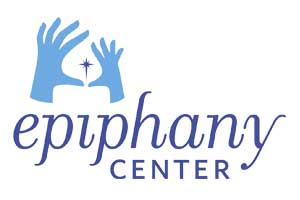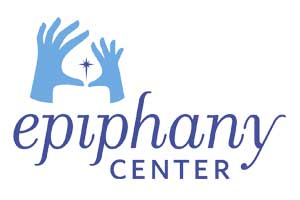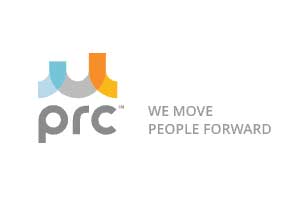Skip To Rehab Listing
Alcohol and Drug Treatment Facility Settings and Approaches
The large number of people who struggle with drug and alcohol addiction in the Sausalito area necessitate the presence of a variety of treatment centers, where patients can access the resources they need in a suitable setting. These programs include the following: long term rehab facilities, inpatient treatment programs, outpatient hospital programs, short term treatment programs, outpatient detox programs.
These treatment centers provide many different methods to addiction treatment, making it possible for clients to find an approach that is effective for them. Those seeking treatment can find any of the recovery methods available in Sausalito like: couple/family therapy, contingency management/motivational incentive, anger management, 12-step facilitation approach, group therapy, group therapy.
Special Programs for Substance Abuse Recovery
In order to attain lasting recovery, those struggling with alcohol and drug abuse occasionally need customized programs created for their unique circumstances. Sausalito treatment centers deliver many programs including: housing services, residential beds for client's children, substance abuse education, veterans, aftercare/continuing care, legal advocacy.
Clients can inquire about a facility's programs and approaches and receive instruction in finding the right treatment for their needs.
Recovery Payment Options
Drug and alcohol treatment programs also tailor their financing alternatives to suit the different financial needs of their patients. In general, patients have multiple payment options for their recovery, such as the following: private medical insurance, private pay, sliding fee scale, military insurance, state corrections or juvenile justice funds, county or local government funds.
Those looking for treatment should not permit funds to be a barrier. Treatment centers can guide them through their payment plans and help them find a workable solution.
Thanks to Sausalito's many choices for alcohol and drug rehab and payment, individuals seeking assistance can get a suitable, tailored, and affordable rehab program.
Commonly Asked Questions about Addiction and Treatment
What does fentanyl do to a person?
Fentanyl is a synthetic opioid pain reliever that is 50 to 100 times more potent than morphine. It's typically used to treat severe pain, especially after surgery, or to manage pain in individuals with chronic illnesses who have developed a tolerance to other opioids.
When used under medical supervision, fentanyl can effectively relieve pain. However, when used illicitly or without a prescription, it can have severe, and even fatal, effects. Here's what fentanyl can do to a person:
Physical Effects: In the short term, fentanyl can induce feelings of relaxation, euphoria, and decreased perception of pain. However, it also slows breathing and can lead to unconsciousness or death from respiratory failure, particularly in high doses or when combined with other substances that depress the central nervous system.
Dependency and Addiction: Fentanyl is highly addictive. Regular use can lead to physical dependence, where the body requires the drug to function normally, and psychological addiction, where a person feels a compulsive need to use the drug despite its harmful consequences.
Overdose Risk: Due to its potency, the risk of overdose with fentanyl is high, especially if a person mistakenly believes they're taking a less potent opioid, as illicit fentanyl is often mixed with other drugs. Overdose can lead to severe respiratory depression, unconsciousness, and death.
Withdrawal: Once a person becomes dependent on fentanyl, stopping its use can result in withdrawal symptoms. These can include muscle and bone pain, sleep problems, diarrhea, vomiting, cold flashes, and uncontrollable leg movements.
Long-Term Health Effects: Chronic fentanyl use can lead to an array of health problems, including severe constipation, increased sensitivity to pain, confusion, depression, and increased risk of infections due to needle sharing (if injected).
Due to its potency and high risk of overdose, non-medical use of fentanyl is extremely dangerous. If you or someone you know is struggling with fentanyl or other opioid use, it's crucial to seek professional help immediately.
Facts about fentanyl
Fentanyl is a powerful synthetic opioid analgesic that has garnered significant attention in recent years due to its role in the opioid crisis. Here are some essential facts about fentanyl:
Potency: Fentanyl is estimated to be 50 to 100 times more potent than morphine and 25 to 50 times more potent than heroin. Due to its high potency, it is prescribed in micrograms (mcg) rather than the milligrams (mg) typically used for other opioids.
Medical use: Fentanyl is primarily used in medical settings to manage severe pain, such as chronic pain or breakthrough pain in cancer patients. It is also used as an anesthetic during surgical procedures. Fentanyl is available in various forms, including transdermal patches, lozenges, tablets, and injections.
Illicit use: Fentanyl has become a significant concern in the illicit drug market due to its potency and relatively low production cost. Illegal fentanyl is often mixed with other drugs, such as heroin, cocaine, or counterfeit prescription pills, increasing the risk of overdose for unsuspecting users.
Overdose risk: Fentanyl's potency makes it particularly dangerous, as even a small amount can cause an overdose. Signs of fentanyl overdose include slow or shallow breathing, unresponsiveness, pinpoint pupils, cold and clammy skin, and loss of consciousness. Fentanyl overdoses can be fatal if not promptly treated.
Naloxone: Naloxone, also known as Narcan, is an opioid antagonist that can rapidly reverse the effects of a fentanyl overdose by displacing the drug from the opioid receptors in the brain. Due to fentanyl's potency, multiple doses of naloxone may be necessary to reverse an overdose effectively.
Fentanyl analogs: There are numerous fentanyl analogs or derivatives, such as carfentanil, acetylfentanyl, and furanylfentanyl. These analogs can have varying potencies, often significantly stronger than fentanyl itself, which can further increase the risk of overdose and fatalities.
Legal classification: Fentanyl is a Schedule II controlled substance in the United States, indicating that it has a high potential for abuse and dependence but also has accepted medical uses. Illicit fentanyl and its analogs are often classified as Schedule I substances, indicating that they have no accepted medical use and a high potential for abuse.
Addiction and dependence: Fentanyl, like other opioids, carries a risk of addiction and physical dependence. Chronic use can lead to tolerance, requiring higher doses to achieve the same effect, and withdrawal symptoms if usage is reduced or stopped abruptly.
What is the 12 step method for treating addiction?
"The 12-step method for treating addiction is a structured, peer-based approach that originated with Alcoholics Anonymous (AA) in the 1930s. Since then, it has been adapted for various other substance use disorders and behavioral addictions, including Narcotics Anonymous (NA), Gamblers Anonymous (GA), and Overeaters Anonymous (OA), among others. The method is based on a set of guiding principles, known as the 12 steps, that outline a path to recovery, personal growth, and spiritual development.
The 12 steps of the method are as follows:
- Admitting powerlessness over the addiction and recognizing that one's life has become unmanageable.
- Believing that a higher power (interpreted by each individual according to their beliefs) can restore sanity and provide support in recovery.
- Deciding to turn one's will and life over to the care of the higher power.
- Conducting a thorough and honest moral inventory of oneself.
- Admitting to oneself, the higher power, and another person the exact nature of one's wrongs and shortcomings.
- Being ready to have the higher power remove these defects of character.
- Humbly asking the higher power to remove one's shortcomings.
- Making a list of all the people harmed by one's addiction and being willing to make amends to them.
- Making direct amends to those harmed, whenever possible, except when doing so would cause harm to them or others.
- Continuing to take personal inventory and promptly admitting when one is wrong.
- Seeking to improve one's conscious contact with the higher power through prayer and meditation, asking for knowledge of the higher power's will and the strength to carry it out.
- Having experienced a spiritual awakening as a result of these steps, carrying the message to others struggling with addiction and practicing these principles in all aspects of life.
The 12-step method emphasizes the importance of peer support, mutual aid, and the sharing of personal experiences as a means of overcoming addiction. Participants typically attend regular meetings, where they share their stories, listen to others, and work through the steps at their own pace. Many 12-step programs also encourage members to find a sponsor, an experienced member who has worked through the steps and can provide guidance, support, and accountability during the recovery process."













